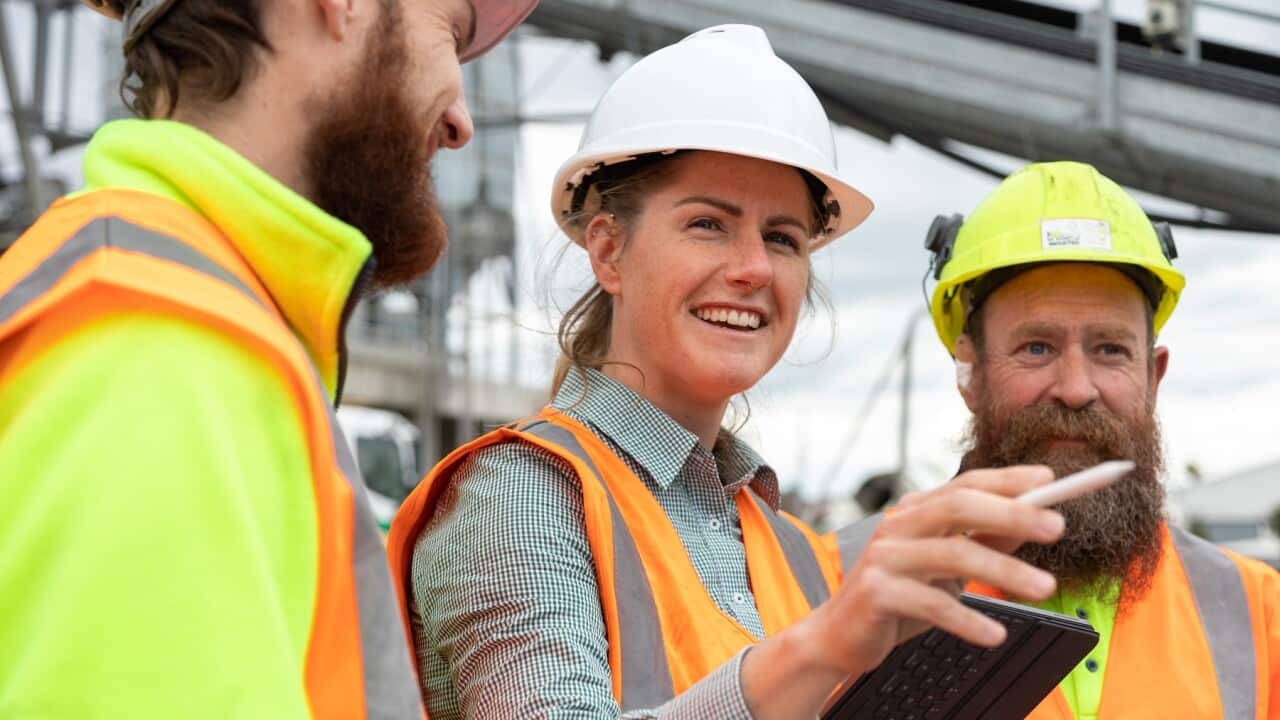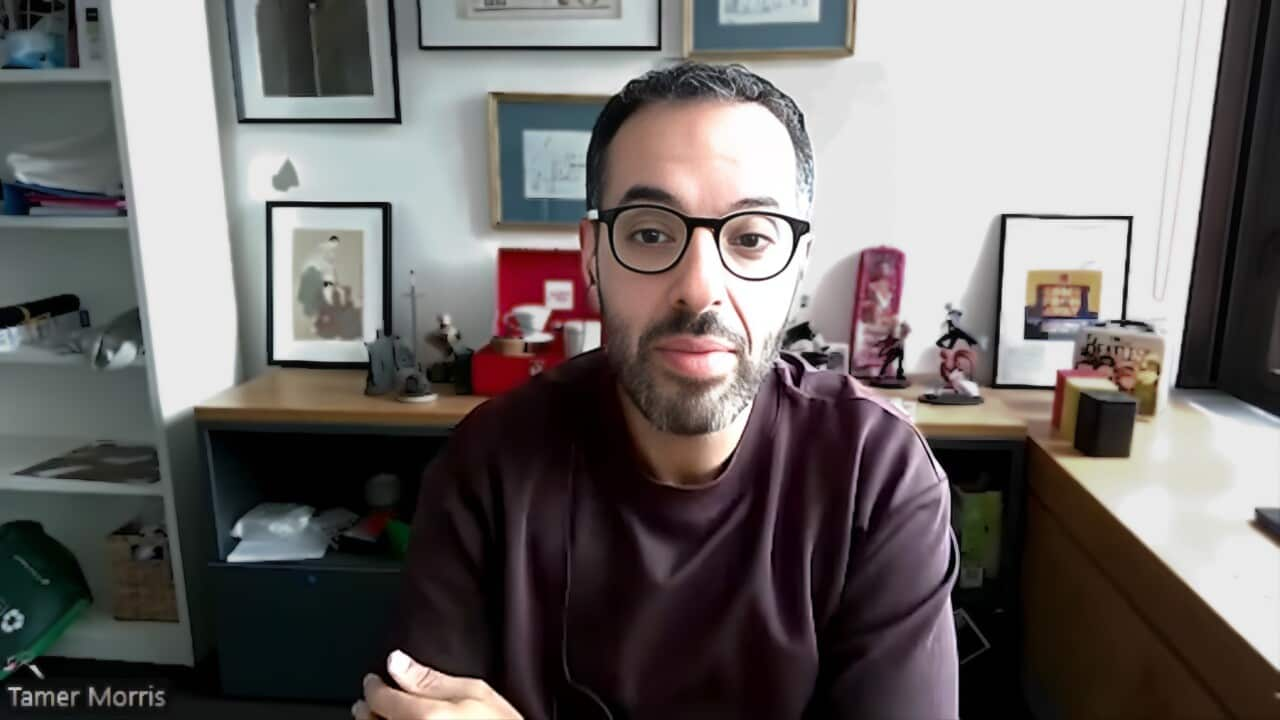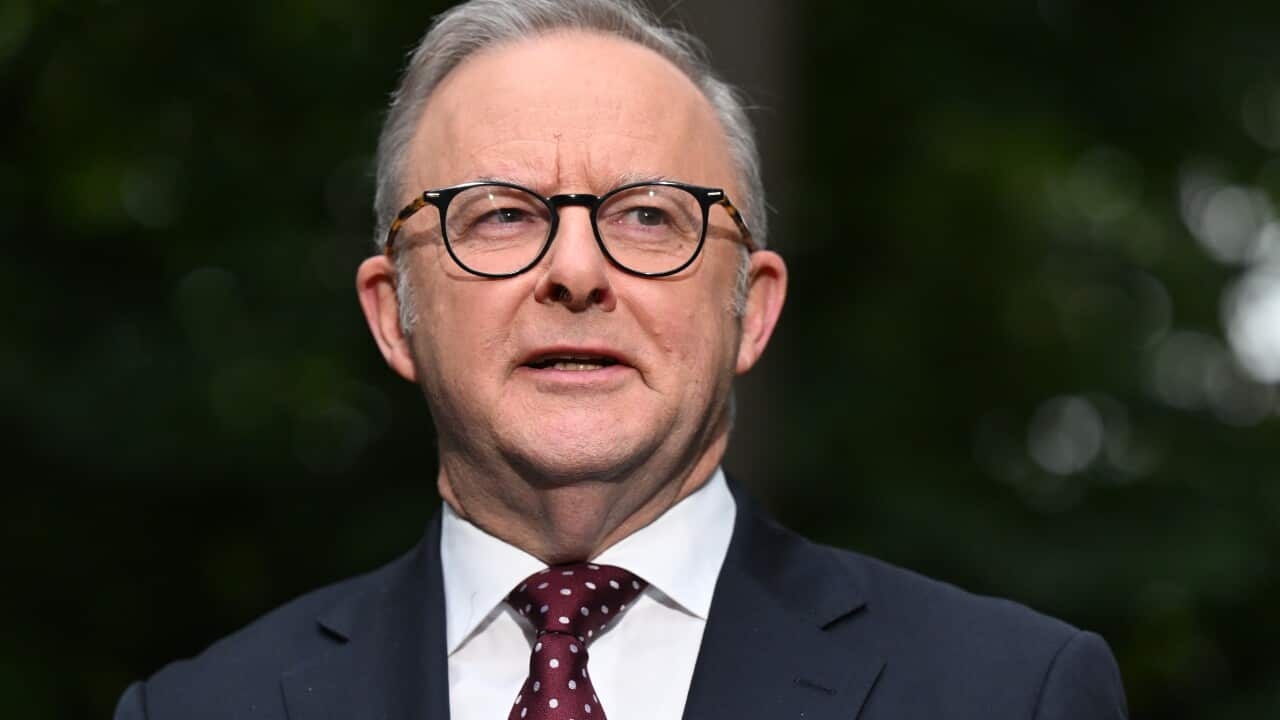Listen to Australian and world news, and follow trending topics with SBS News Podcasts.
TRANSCRIPT
As government officials, business leaders and economists attend a national economic round table in Canberra this week, you will keep hearing them mention a buzzword: productivity growth.
According to the Reserve Bank, productivity refers to how much output can be made within a given set of inputs.
It includes two aspects.
One is labour productivity, which focuses on workers themselves, such as their skillsets, the technology they use, and how they are managed.
The other one is multifactor productivity, which looks at factors beyond the workers, such as capital, land, energy and materials.
Why will it be the focus of the national economic round table this week?
Federal Treasurer Jim Chalmers says that's because there's no better time than now to talk about it.
"Our economy is finally balanced, between the progress we've made on wages and inflation and living standards and the productivity that we desperately need to sustain that progress in the years and decades ahead. Living standards, higher living standards, are the holy grail, and that makes productivity the primary focus."
In recent decades, Australia's productivity growth has slowed.
During the Financial Year of 2022/2023, it was only 0.9 per cent.
It mirrors the general experience of many advanced economies, but the Reserve Bank says the slowdown also reflect persistent flaws of Australia's economy, such as declining business competition, slower upgrades in technology, and low wage growth.
Trent Wiltshire, Deputy Director of Grattan Institute's Economic Prosperity program, says in the past decade, there have been attempts and measures by both federal and state governments to increase talent pools and business investment.
"There have been reforms to skilled migration in the past few years, (such as) streamlining employer sponsorship (which has been) good, the reform of point tests (which) is underway - that's a big layer for the input - but it hasn't been implemented. There's been some attempts on tax reform, although not particularly big. We have seen some changes in higher education. State governments also play a role too, so we've seen Victorian and New South Wales (government) are reforming their planning system on more houses can be build at where people live."
But Mr Wiltshire says these policies haven't been able to offset some persistent barriers for Australia's productivity, including its ageing population. He says Australia's growth of service sector also slows down productivity.
Ahead of the round table, various stakeholders already signal their pitches to boost Australia's productivity.
Business representatives call for cutting the levels of red tapes and the uptake of emerging technology.
Unions want to see four-day working weeks.
Welfare advocates urge the Government to fix what they call the broken employment services.
Among the calls, one of the most controversial topics is artificial intelligence.
It follows the Treasurer's comment that A-I is what he calls a game changer for Australia's economy.
But questions have been looming regarding A-I's tolls on human jobs, regulations on copyrights, and the capacity of businesses to roll out the technology. Even Mr Chalmers has also admitted that Australia needs to find a middle path for A-I.
Dr Jake Goldenfein is a law and technology scholar at Melbourne Law School. His research has found while A-I may help boost productivity at work, the roll out of A-I can be pricey and slow.
"If we as a nation are interested in increasing sovereign capability around A-I and getting benefits from A-I, we need to think about ways in which we can do that but don't rely so heavily on international software companies, because we are sending a lot of cash overseas in order to procure these technology products that aren't necessarily what our organisations need, and require a lot of work to operate safely."
The three-day national summit only serves as a brainstorming platform for the Albanese government.
But Danielle Wood, the chair of the Productivity Commission, says the government needs to re-adopt what she calls the growth mindset to its policy making, as young Australians are already paying price for the low productivity growth.
"Australians born in the 1990s – who hit the job market in the 2010s when economic growth was slow – were the first generation not to earn more than people born a decade before. "This generation will bear more of the cost of addressing climate change – both the impacts of wilder weather, and the policy response – because Australian policy makers have for so long avoided the lowest cost policy choices."
Dr Chalmers says he has realistic but also optimistic expectations on the outcome of the summit.
He says while the round table won't solve all economic problems in three days, it will set light on the government's budgets in the next three years.
"I'm optimistic that there is an appetite for reform, there is ambition when it comes to dealing with the three major challenges in our economy, productivity first of all, but also economic resilience and also budget sustainability as well. So I'm realistic, but I'm optimistic that we can make some progress together."













